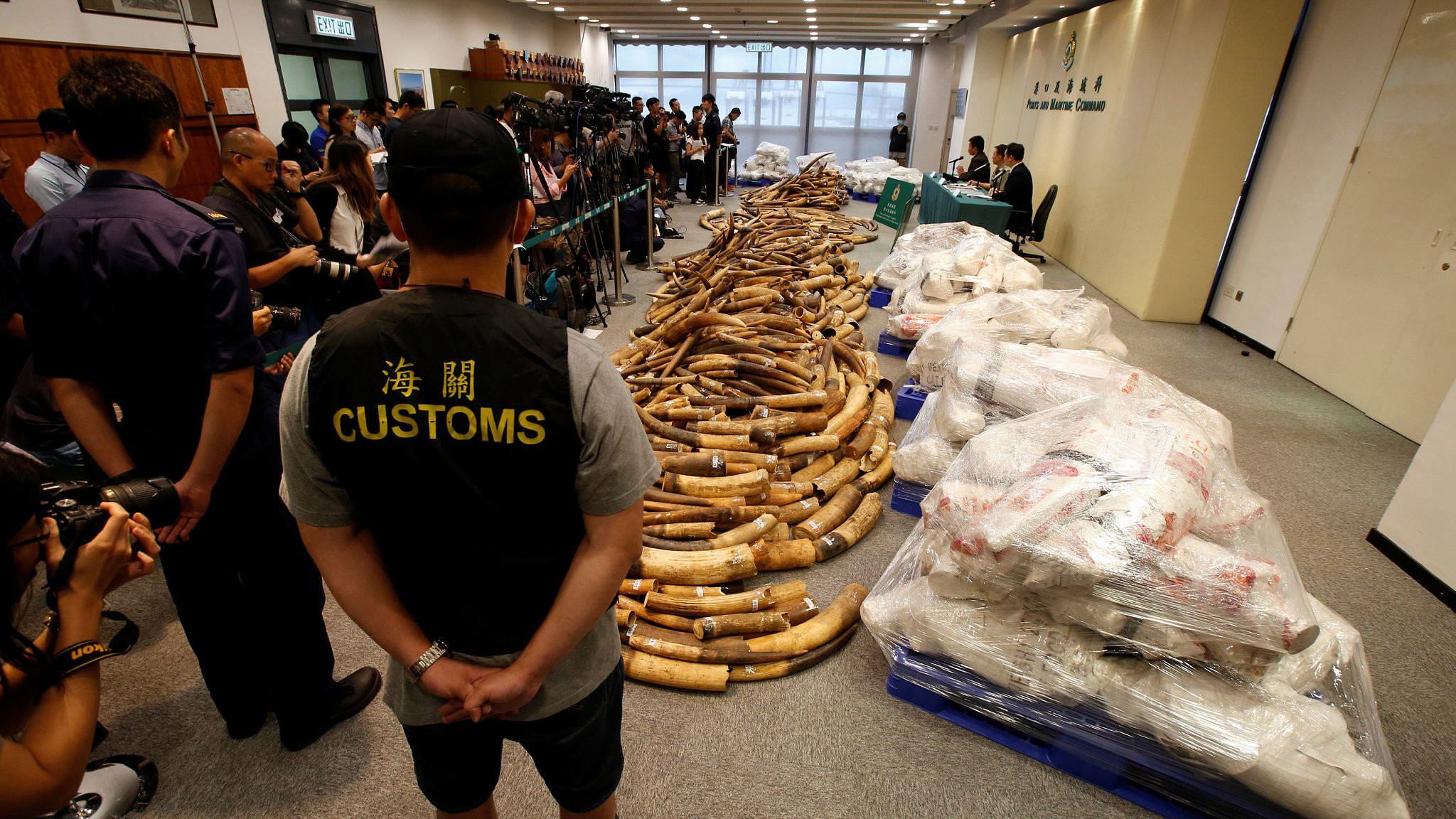
Tech & Sci
18:47, 31-Jan-2018
Hong Kong bans ivory trade
Alok Gupta

Hong Kong, epicenter of the world’s ivory trade, banned the business on Wednesday.
The local Legislative Council passed the Endangered Species of Animals and Plants (Amendment) Bill 2017, also known as the Hong Kong Ivory Ban Bill. The decision to ban the trade comes barely a month after the Chinese mainland made the same move.
In a landslide victory for animal rights groups, lawmakers voted for the bill to end ivory trade. Taders will have to sell their entire ivory stock within three and half years.
International trade in ivory continues despite a worldwide ban on sales of tusks from elephants killed after 1990, under the Convention on International Trade in Endangered Species of Wild Fauna and Flora (CITES). Ivory procured before 1990 is known as pre-Convention ivory.
Hong Kong is the leading city in the world for the ivory trade. A World Wildlife Fund (WWF) study in 2015 found 30,856 ivory pieces displayed for sale in 72 retail outlets across the city. Despite the evidence presented, the Hong Kong government has been hesitant to act.
Ivory prices in Hong Kong have been dropping since the Chinese mainland’s ban, announced by President Xi Jinping in September 2015. From a high of 2,100 US dollars per kilogram in 2014, the price has now fallen to less than 766 US dollars per kilogram of pre-Convention ivory with paperwork.
Alex Hofford, a Hong Kong-based campaigner for environmental organization WildAid, said Hong Kong has always been the “heart of darkness” of the ivory trade with 670 tons stockpiled when international trade was banned in 1989 during the CITES meeting.
"With great support from the Hong Kong people, our five-year campaign has finally paid off. It started with the destruction of the seized ivory stockpile. Then we persuaded Hong Kong's four large department stores to stop selling ivory.”
WildAid and other animal rights groups had exposed how traders were using paperwork of the legal trade to launder freshly poached ivory into the system.
Hong Kong lawmaker Elizabeth Quat has also been at the forefront of efforts to curb the trade. “Today's Legislative Council vote marks a great day for elephants,” she said.
More than 30,000 African elephants are still poached for ivory annually. The number used to be higher, before the Chinese ban followed by a crackdown on ivory smugglers and poachers in recent years.
Poaching in Kenya is down from 390 elephants killed in 2013 to only 46 last year, according to state conservation body the Kenya Wildlife Service, and by 55 percent in Tanzania in 2016 compared to 2015.
Erik Solheim, executive director of the United Nations Environment Programme, described Hong Kong banning ivory sales as a breakthrough moment in the battle to save elephants from extinction.
“This is a huge tribute to the leadership of lawmakers and a fantastic effort by civil society groups to push for action on this issue. We now need to see all other countries close loopholes that still allow the illegal trade of ivory to continue,” Solheim said.

SITEMAP
Copyright © 2018 CGTN. Beijing ICP prepared NO.16065310-3
Copyright © 2018 CGTN. Beijing ICP prepared NO.16065310-3